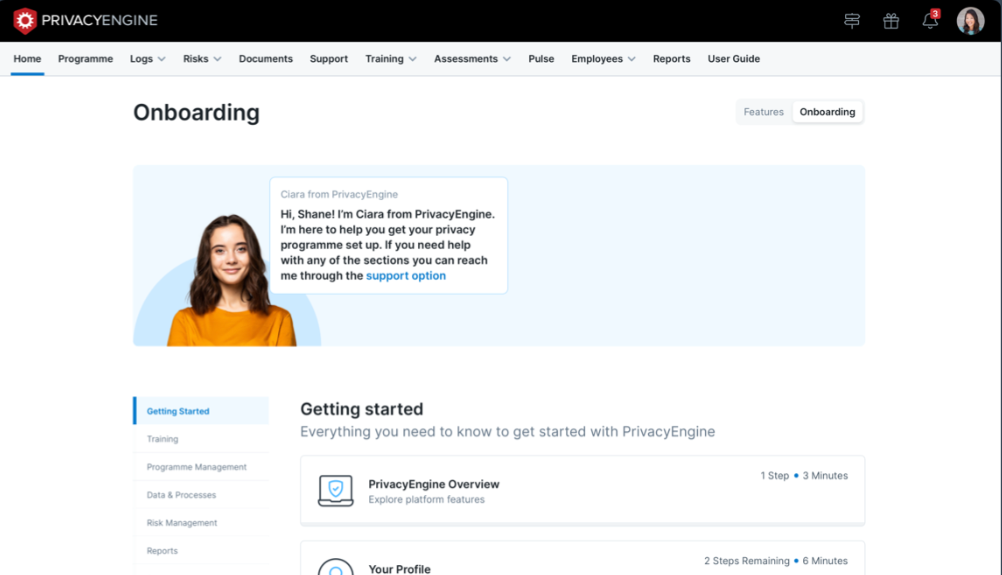The Protection of Personal Information Act (POPIA) is a significant piece of legislation in South Africa that aims to safeguard personal data. With the increasing reliance on digital platforms and the vast amounts of data being processed, understanding and implementing POPIA is crucial for organisations. Leaders play a vital role in ensuring compliance and protecting their organisations from potential risks associated with data breaches and mismanagement. This article delves into the core requirements of POPIA, the implementation strategies organisations should adopt, the challenges they may face, and how tools like PrivacyEngine can assist in navigating this complex landscape.
Understanding POPIA’s Core Requirements
Key Principles and Compliance Obligations
At the heart of POPIA are several key principles that govern the processing of personal information. These principles include accountability, processing limitation, purpose specification, further processing limitation, information quality, openness, security safeguards, and data subject participation. Organisations must ensure that they adhere to these principles when collecting, storing, and processing personal data. Each principle serves a specific purpose, contributing to the overall integrity and security of personal information. For instance, the principle of processing limitation mandates that personal data should only be processed if it is necessary for the specific purpose for which it was collected, thereby minimising the risk of misuse.
Compliance obligations under POPIA require organisations to implement appropriate measures to protect personal information. This includes obtaining consent from data subjects before processing their information, ensuring that data is accurate and up-to-date, and providing individuals with the right to access their data. Organisations must also establish clear protocols for data breaches, including timely notification to affected individuals and the Information Regulator. Failure to comply can result in significant penalties, making it imperative for leaders to prioritise these obligations. Moreover, organisations should consider conducting regular audits and assessments to evaluate their compliance status and identify areas for improvement, thereby fostering a proactive approach to data protection.
The Role of Information Officers and Accountability
One of the critical components of POPIA is the designation of an Information Officer within organisations. This individual is responsible for ensuring compliance with the Act and acts as a liaison between the organisation and the Information Regulator. The Information Officer plays a crucial role in developing and implementing data protection policies, conducting training, and overseeing data processing activities. They must stay informed about changes in legislation and best practices in data protection to effectively guide their organisation in navigating the complexities of compliance. Additionally, the Information Officer should be empowered to advocate for necessary resources and support to enhance data protection initiatives.
Accountability is a central tenet of POPIA, emphasising that organisations must take responsibility for their data processing activities. Leaders must foster a culture of accountability within their organisations, ensuring that all employees understand their roles in protecting personal information. This includes regular training and awareness programs to keep data protection at the forefront of organisational priorities. Furthermore, organisations should implement clear reporting structures that allow employees to raise concerns or report breaches without fear of retaliation. By promoting transparency and encouraging open communication about data protection, organisations can build trust with their stakeholders and enhance their overall compliance posture.
Implementing POPIA in Your Organisation
Data Mapping and Processing Impact Assessments
Implementing POPIA effectively begins with a thorough understanding of how personal data flows within the organisation. Data mapping is an essential exercise that involves identifying the types of personal information collected, the sources of that data, and the purposes for which it is processed. This mapping process helps organisations gain insight into their data handling practices and identify any potential compliance gaps. It is also beneficial to involve various departments in this process, as different teams may handle personal data in unique ways. By fostering collaboration, organisations can create a more holistic view of their data landscape, ensuring that no aspect is overlooked.
In addition to data mapping, conducting Processing Impact Assessments (PIAs) is crucial. These assessments evaluate the potential risks associated with data processing activities and help organisations implement necessary safeguards. By identifying and mitigating risks early on, organisations can enhance their compliance posture and protect the personal information they handle. Furthermore, PIAs can serve as a valuable tool for fostering a culture of privacy within the organisation, as they encourage employees to think critically about the implications of their data processing activities and to prioritise data protection in their daily operations.
Developing Compliant Policies and Procedures
Once data mapping and PIAs are complete, organisations must develop comprehensive policies and procedures that align with POPIA’s requirements. These policies should cover various aspects of data processing, including data collection, storage, sharing, and disposal. It is essential to ensure that these policies are not only compliant but also practical and easily understood by all employees. Regular training sessions can be implemented to reinforce these policies, helping employees stay informed about their responsibilities and the importance of compliance in their roles.
Moreover, organisations should establish clear procedures for handling data subject requests, such as access requests or requests for correction of personal information. Transparency is vital, and organisations must communicate their policies effectively to data subjects, ensuring they understand their rights under POPIA. To facilitate this, organisations can create user-friendly guides or FAQs that outline the process for data subjects, making it easier for individuals to navigate their rights and the organisation’s obligations. Engaging with data subjects through surveys or feedback mechanisms can also provide insights into their experiences, helping organisations to continuously improve their data handling practices and maintain trust with their stakeholders.
Managing POPIA Compliance Challenges
Handling Data Breaches and Notification Requirements
Despite the best efforts to comply with POPIA, data breaches can still occur. Organisations must be prepared to handle such incidents promptly and effectively. POPIA outlines specific notification requirements in the event of a data breach. Organisations are obligated to notify the Information Regulator and affected data subjects if there is a risk of harm resulting from the breach.
Establishing a robust incident response plan is crucial for organisations to manage data breaches effectively. This plan should outline the steps to be taken in the event of a breach, including containment, assessment, notification, and remediation. Regular testing of the incident response plan can help ensure that organisations are ready to act swiftly and minimise the impact of any breaches. Additionally, training employees on recognising potential security threats and understanding their roles in the incident response process can significantly enhance an organisation’s resilience against data breaches. By fostering a culture of security awareness, organisations can empower their staff to be the first line of defense against potential threats.
Cross-Border Data Transfers and Third-Party Management
As businesses increasingly operate on a global scale, understanding the implications of cross-border data transfers is essential. POPIA imposes restrictions on transferring personal information outside South Africa unless certain conditions are met. Organisations must ensure that adequate protection measures are in place when transferring data internationally. This includes assessing the data protection laws of the destination country to ensure they provide an adequate level of protection comparable to POPIA.
Furthermore, managing third-party relationships is a critical aspect of POPIA compliance. Organisations often rely on external vendors for various services, which may involve sharing personal data. It is essential to conduct due diligence on third parties to ensure they comply with POPIA and have appropriate data protection measures in place. Contracts should clearly outline data protection responsibilities and liabilities to mitigate risks associated with third-party data processing. In addition, organisations should consider implementing regular audits of their third-party vendors to ensure ongoing compliance and to identify any potential vulnerabilities that may arise over time. This proactive approach not only safeguards personal information but also strengthens the overall data governance framework within the organisation.
PrivacyEngine for POPIA Compliance
PrivacyEngine provides a comprehensive, easy-to-use platform that empowers organisations to meet the requirements of South Africa’s Protection of Personal Information Act (POPIA). The platform simplifies compliance by automating critical tasks such as data mapping, risk and impact assessments, and the management of data subject requests. Organisations benefit from a full suite of customisable, POPIA-aligned policy templates and structured workflows for third-party vendor compliance. PrivacyEngine also strengthens internal accountability through interactive employee training and offers real-time dashboards to monitor compliance activities, incident management, and ongoing risk. With PrivacyEngine, organisations can confidently navigate POPIA obligations, reduce regulatory risk, and foster a strong, sustainable culture of privacy and transparency.
Key Features:
- Data Mapping: Automates creation of a full personal data inventory, identifying risks and ensuring clear visibility across processing activities.
- Risk & Impact Assessments: Guides teams through privacy impact assessments (PIAs) to embed privacy by design and proactively mitigate risks.
- Policy Templates: Provides pre-built, customisable POPIA-compliant templates for privacy policies, data processing agreements, and retention schedules.
- Data Subject Request Management: Tracks and manages access, correction, and deletion requests, ensuring timely and legally compliant responses.
- Vendor Compliance: Assesses and manages third-party data processors to ensure external compliance with POPIA standards.
- Employee Training: Delivers interactive training programs to raise staff awareness and promote a privacy-first culture.
- Analytics & Reporting: Offers real-time dashboards to monitor compliance activities, track incidents, and support ongoing improvement.
- Breach Management: Centralises incident reporting and breach notifications to streamline regulatory response obligations.




